The human immunodeficiency virus (HIV) belongs to a class of viruses called retroviruses. Antiretrovirals are drugs that work by interfering with the HIV life cycle.
Antiretroviral drugs do not cure HIV and they do not prevent HIV transmission. When used in combination, these medications reduce the amount of virus in the blood and help to delay the progress of disease.
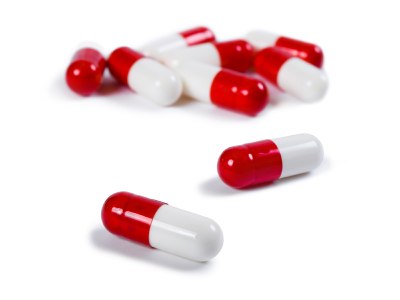
Why is it important to take medications regularly?
Medications should be taken regularly to make sure that you have an effective amount of drug in your body at all times. When medications are not taken regularly, the level of drug in the blood can become too low to effectively stop the virus from multiplying. This gives the virus a chance to mutate and become resistant to the effects of the drug.
Taking medications regularly means:
 Taking your medications at the proper intervals during the day. Try to divide up your dosing times as evenly as possible throughout the day: for example, every 12 hours for a drug that needs to be taken twice a day, or every 8 hours for a drug that needs to be taken three times a day. Make up a schedule that fits into your daily routine, and try to take your medications within 1 hour of each scheduled time.
Taking your medications at the proper intervals during the day. Try to divide up your dosing times as evenly as possible throughout the day: for example, every 12 hours for a drug that needs to be taken twice a day, or every 8 hours for a drug that needs to be taken three times a day. Make up a schedule that fits into your daily routine, and try to take your medications within 1 hour of each scheduled time.
Taking all of your doses each day. It is virtually impossible for anyone to remember to take each and every medication dose properly. Missing an occasional dose is probably less of a concern than frequently missing doses or taking incorrect doses. If you forget a dose, take it as soon as you remember. However, if it is close to the time of your next dose, skip the dose and resume your schedule. Do not double your next dose because this could cause side effects.
Why do certain drugs have to be taken with food and others taken on an empty stomach?

- To make sure you absorb the proper amount of medication. Drugs are large chemical structures that can be sensitive to the conditions in the stomach. For example, didanosine is destroyed by stomach acid, and therefore should always be taken on an empty stomach.In contrast, saquinavir is best absorbed if it is taken within 2 hours of a meal or a substantial (preferably high fat) snack. Drinking grapefruit juice can also increase the amount of saquinavir that is absorbed into your body.Always try to follow these instructions to make sure you absorb your medications properly.
- To reduce side effects involving the stomach. Sometimes food can protect the stomach from getting irritated. Therefore, some drugs such as ritonavir or zidovudine (AZT) may be taken with food to lower the risk of stomach upset or nausea. However, if you are not experiencing any stomach side effects with these drugs, you can also take them without food if it will make your daily routine easier to follow. Ask your pharmacist if you are not sure about the food requirements for your medications.
Here are some ideas to help you meet the food requirements for your antiretroviral therapy. If your medication should be taken on or with:
- An empty stomach – Take your medication either 1 hour before meals, OR 2 hours after meals.
- Lots of water – Fill a one litre bottle with water each morning and sip from it all day.
- Food – If you have trouble eating full meals, try a snack or some fresh fruit and vegetables. You can also ask a dietician in case you want to try a can of Ensure, Advera or other meal supplements.
- Low-fat snacks – Some suggestions include: plain toast with jam, an apple and a glass of skim milk, cereal and skim milk, low fat pretzels, crackers, or plain popcorn.
- Fatty foods – Try the following: crackers with cheese, egg on toast, bagel and cream cheese, potato chips, baked potato with sour cream, a donut, a chocolate bar, a hamburger, pizza, French fries, peanut butter, ice cream.
- Acidic Beverages – Drink a cola (diet or non-diet) carbonated beverage, or a glass of orange, cranberry or apple juice.
- Grapefruit – Have half a grapefruit, or a glass of grapefruit juice (can be fresh or made from frozen concentrate).
What if you have side effects?
Side effects can occur with antiretroviral medications.
The positive aspect is that most side effects such as nausea, vomiting, diarrhea, headache, and feeling unwell are temporary. Most people who experience these side effects find that they are worse during the first one to two weeks after starting medications. During this time, do not adjust your dose or stop your medication without first consulting a physician.
After a few weeks, most people find that they have become used to the medications and the side effects have disappeared or are much less bothersome. If the side effects continue or become worse, consult your health care team.
Some suggestions for getting through temporary side effects include:
- Nausea, vomiting – Try using Gravol* (available from your pharmacy) and follow the instructions on the package. Try the suppositories if you cannot keep anything down. Drink lots of fluid to make sure you do not get dehydrated. Fruit juices or pop are good because they contain sugar and electrolytes which are lost when you throw up. Try eating bland foods like rice, toast, apple sauce, or bananas.
- Loss of appetite – Some people find that their taste for food decreases temporarily when they start antiretrovirals. Do not be alarmed if this happens. If you find yourself unable to eat full meals, try to eat lots of small snacks throughout the day. Stay away from food that makes you feel particularly nauseous. You can also add a food supplement such as Ensure or Advera to your diet.
- Diarrhea – Try using Imodium* (available from your pharmacy). Take one tablet after every episode of diarrhea to a maximum of eight tablets a day. Make sure you drink lots of fluids and eat bland foods that are unlikely to upset your stomach.
- Headache – Aspirin* or Tylenol* can be taken for pain relief. Resting in a quiet dark room with a cool cloth on your forehead may also help.
- Feeling unwell – The best way to treat this is to give yourself plenty of rest. Take time away from work or give yourself a break from your regular schedule if possible. Make sure you continue eating regular meals. Take Tylenol* if you need it or Gravol* if you feel sick to your stomach.
- Rash – Most drug rashes are mild but you should always tell your doctor if your rash starts becoming severe. Try Benadryl*, which is an antihistamine that you can buy at a pharmacy. It may make you drowsy at first until your body adjusts to it. Avoid “non-drowsy” antihistamines such as Seldane and Hismanal, since they may interact with other medications you are taking.
Always ask your pharmacist to make sure these drugs are safe to take with your other medications.
There are many natural or herbal products available through health food stores which claim to help relieve the symptoms of various drug side effects. Most of these products have not been clinically studied. If possible, consult with a naturopath experienced in HIV disease and discuss with other people about what has worked for them.
Less frequent and more serious side effects such as neuropathy (painful tingling in the tips of your fingers and toes), pancreatitis, liver problems and lowered blood cell counts can occur after several months of therapy. Your health care team should watch carefully for these side effects through regular blood tests and physician appointments. These side effects are reversible if quickly recognized and the drug is discontinued or the dose is reduced.
Stop your medication and get immediate medical attention if you experience:
- Sudden wheeziness or shortness of breath, pounding of your heart, chest pain or tightening
- Unusual bleeding or bruising, fever or chills
- Sudden, severe stomach pain with nausea or vomiting
- Severe rash or “hives” with or without symptoms such as fever, blistering, mouth sores, swelling of your eyelids, face or lips, muscle or joint aches or generally feeling unwell.
Should you lower your drug dose if you are having side effects?
Sometimes side effects may be more manageable if the dose of a drug is lowered.
However, this depends on the particular drug. With some drugs, lowering the dose too much can make the virus resistant and the drug will lose its effectiveness.
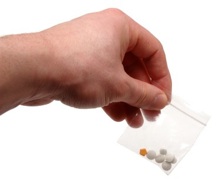 Whether the dose should be lowered is best decided by discussion with your physician. If you are having very severe side effects, it is best to stop the drug altogether and check with your doctor to see if the dose should be changed or your should switch to another drug.
Whether the dose should be lowered is best decided by discussion with your physician. If you are having very severe side effects, it is best to stop the drug altogether and check with your doctor to see if the dose should be changed or your should switch to another drug.
Do not adjust the dose on your own.
Is it safe to take antiretrovirals with other medications?
Many medications, including antiretrovirals, can possibly interact with other agents, including prescription medications, over-the-counter medications, some herbal preparations, nutritional supplements, and even certain vitamins and minerals. Interactions can sometimes lead to decreased medication effectiveness, increased risk of side effects, or both.
Therefore, make sure your physician or pharmacist has a complete list of all the drugs and naturopathic or herbal remedies you are taking, and check with your pharmacist before beginning any new product.
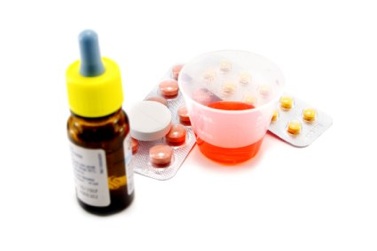
Is it safe to use alcohol or recreational drugs while you are on antiretroviral therapy?
There is a possibility that antiretroviral medications may interact with alcohol or recreational drugs.
For instance, people on ritonavir should avoid taking ecstasy (also known as MDMA), since there has been one fatal case report with this combination.
However, most of the possible interactions with recreational drugs have not been studied and are unlikely to be studied. Therefore, it is suggested that if you choose to drink alcohol or take recreational drugs, you monitor the effects they have on you by taking a little at a time to see if the effects are stronger or weaker than you are used to.
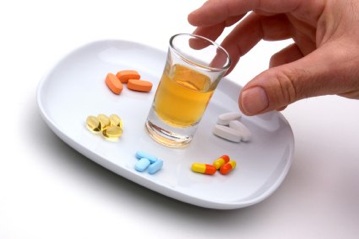
Why should medications be stored under specific conditions?
Medications are chemical structures which can be sensitive to heat and/or cold, or to changes in light or humidity. Therefore, storage conditions are important.
 For example, indinavir becomes less active when it is exposed to moisture in the air. It should always be kept in its original container with a desiccant (a product which helps to keep the indinavir dry).
For example, indinavir becomes less active when it is exposed to moisture in the air. It should always be kept in its original container with a desiccant (a product which helps to keep the indinavir dry).
Sometimes, the coating of the drug can be sensitive to temperature.
For example, if ritonavir capsules are left at room temperature, they will melt. Therefore, it is important to always keep ritonavir capsules in the refrigerator. There are special cold packs available if you are going to be somewhere where you are unable to store your ritonavir in a refrigerator. You can also ask about using ritonavir solution, which may be kept at room temperature for one month.
What are some suggestions and tips to help make taking medications easier?
Prepare in Advance
Before starting antiretroviral therapy, you can prepare yourself in order to get the most benefit from your medications.
Some tips include:
Find out what dosing regimen you will be on, and practice taking candies or mints at regular times. If you find you are having trouble with your routine, you may want to try out some of the ideas listed later in this section to see which will best suit you.
Learn about possible temporary side effects of the medications, and make sure you have supplies on hand for relief (e.g., over-the-counter medications, palatable food, etc.).
Put support mechanisms in place in advance. Sometimes having a “buddy” (e.g., someone who can remind you to take your medications, help you if you are not feeling well, or give you tips on how to manage certain side effects) can be useful.
Create a Personal Schedule
Most people find it helpful to make a medication schedule that will fit into their daily routine.
Check to see that your bottles are clearly labeled with the name of the drug and the directions. Keep information leaflets on your medications that contain special instructions.
Make sure you know exactly when and how each drug should be taken (e.g., number of times each day, with or without food, number of pills).
Try to fit your dosing times into your daily routine,keeping in mind your normal waking and sleeping times, your meal times and other activities such as working or going out.
If possible, try to simplify the number of dosing times during the day, but always check with your pharmacist to make sure that your medications can be taken together.
You may wish to sketch out your schedule on a piece of paper. Make an appointment with the pharmacist if you would like help in creating your schedule. For example:
Medication Schedule Example – Twice Daily

Medication Schedule Example – Once Daily
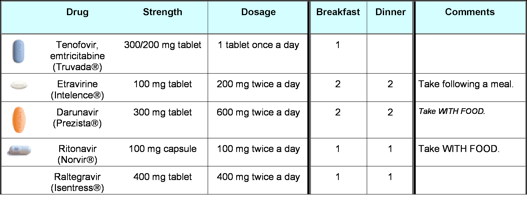
Make sure your medications are always available
It may be helpful to keep your medications in a highly visible place such as on the kitchen table, by the television, beside your bed, or wherever you usually are at the times you need to take your medications.

You may also want to keep a small amount of your medications at work or at a friend’s place as a spare supply.
Plan ahead for trips and weekends. You may need to send a supply of medication to your destination in advance if you are traveling to another country.
Avoid letting your medication supply run low. Make appointments with your doctor for new prescriptions well in advance. Also, call your pharmacy for refills of your medications several days ahead of time.
Take advantage of compliance devices
The main reason people miss medication doses is that they simply FORGET. There are many devices available to help people remember to take their medications correctly. Ask your pharmacist which devices may be most suitable for your needs. Some commonly used compliance devices include:
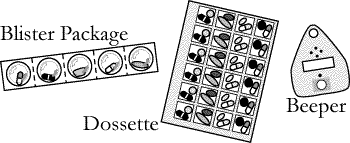
Dossettes – Dossettes are plastic containers that organize doses of your medications. The containers are divided into sections for different times throughout the day (usually morning, afternoon, evening, and bedtime). Dossettes come in different sizes, and can hold a day’s or a week’s worth of medication at a time. Your medications are placed in each compartment according to when you need to take them. This also provides a visual reminder for you as you take your medications. If you think this option sounds helpful, you can ask your pharmacy to put your medications in dossettes on a weekly basis. Another option is for you to buy a dossette and fill it on your own. Remember that some drugs are sensitive to light, temperature, and/or moisture and should be kept in their original containers.
Blister packaging – Certain pharmacies will provide a service (often free of charge) called blister or bubble packing. Blister packs help to organize your doses of medication each day the same way that dossettes do. However, instead of plastic containers, blister packs are sealed cards that have clear plastic bubbles that hold doses of your medications. Usually, the bubbles on each card are divided into four columns labeled morning, noon, evening, and night, with a different row for each day of the week. You may need more than one card to fit all your medications. At each dosing time, you just push the medication(s) out through the back of the card. Some medications cannot be blister packed because they have to be stored in their original container. Ask your pharmacist for more information about this option if it appeals to you.
Medication Diary – Another way to keep track of your medications is to use a diary to record each dose that you take. If you find yourself missing a lot of doses, check your diary to see if there is a pattern. For instance, people often forget doses on weekends or holidays because they sleep in later or have their meals at different times. Others may miss doses because they are working or are out late at night. If you notice a pattern, try to rearrange your medication schedule so it will fit better into your daily routine.
Beepers – You can also ask your community pharmacist about beepers or alarms to remind you to take your medications at the proper times. Another method is to use an electronic watch with a beeper.
Who should you tell if you are having problems?
 It is not uncommon to have trouble getting used to taking a lot of medications. Your health care team would like to help you if you are having difficulties.
It is not uncommon to have trouble getting used to taking a lot of medications. Your health care team would like to help you if you are having difficulties.
For example, if you cannot swallow your pills, let your pharmacist know. Some drugs are available as liquids or can be dissolved in a glass of water or other fluids.
If you begin experiencing severe symptoms such as:
- Sudden wheeziness or shortness of breath, pounding of your heart, chest pain or tightening
- Unusual bleeding or bruising, fever or chills
- Severe rash or “hives” with or without symptoms such as fever, blistering, mouth sores, swelling of your eyelids, face or lips, muscle or joint aches or generally feeling unwell.
Please see your physician as soon as possible, or go to your nearest emergency room.
If you are having problems paying for your medications, it may be helpful to meet with a social worker.
How can you get support and encouragement?
If you have a supportive partner or family, show them your medication schedule for both support and encouragement.
Join an HIV support group that discusses medication issues.
If your regimen is complicated, ask your doctor or pharmacist to find ways to simplify your regimen
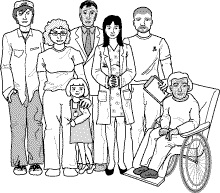
Written and created by:
Alice Tseng, Pharm. D.
Christine Malmberg, Pharm. D.
Toronto General Hospital
Many thanks to the contributions of:
Craig McClure
Community AIDS Treatment Information Exchange (CATIE)
Michelle Foisy, Pharm. D.
The Wellesley Health Centre
Derek Thaczuk
Toronto People With AIDS Foundation (PWA)
Booklet design and illustrations by:
Cynthia Watada
Cynthia Yee Illustration
Printed with the assistance of an educational grant from:




Leave a Reply